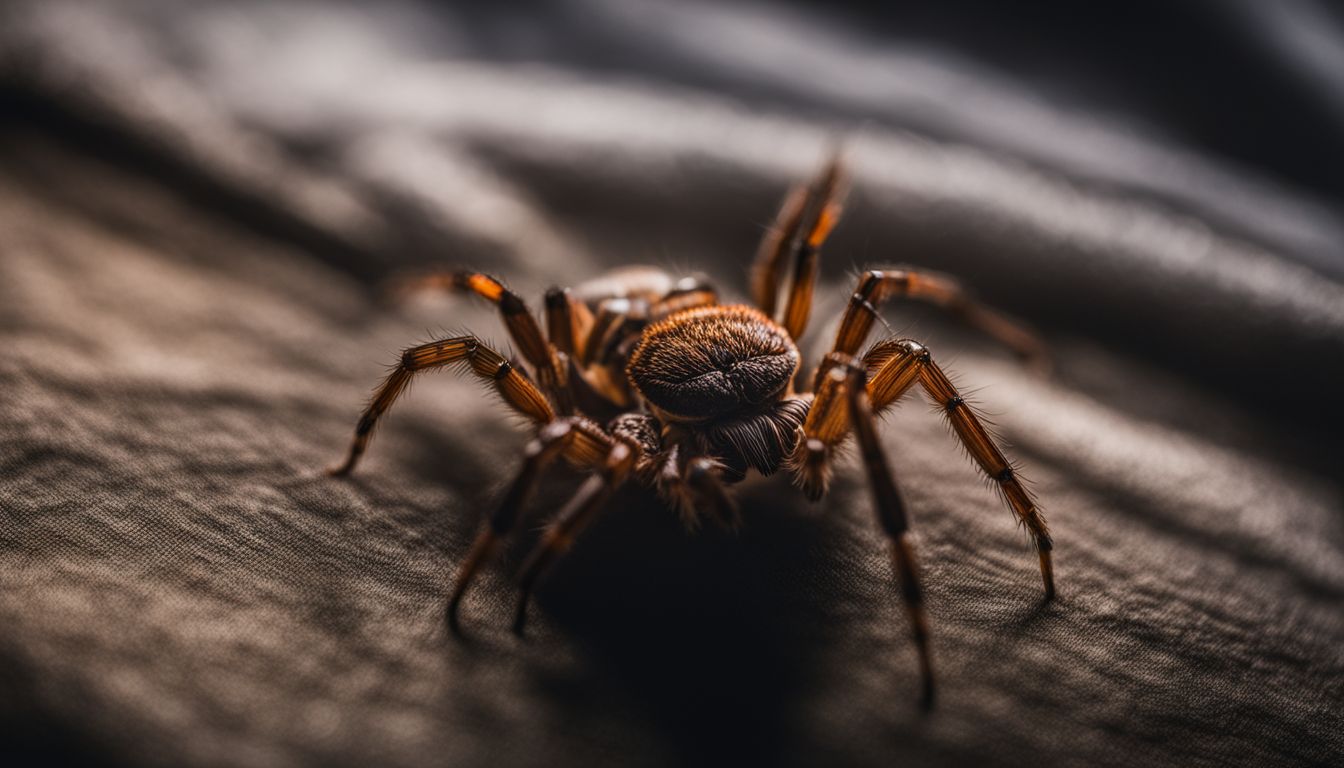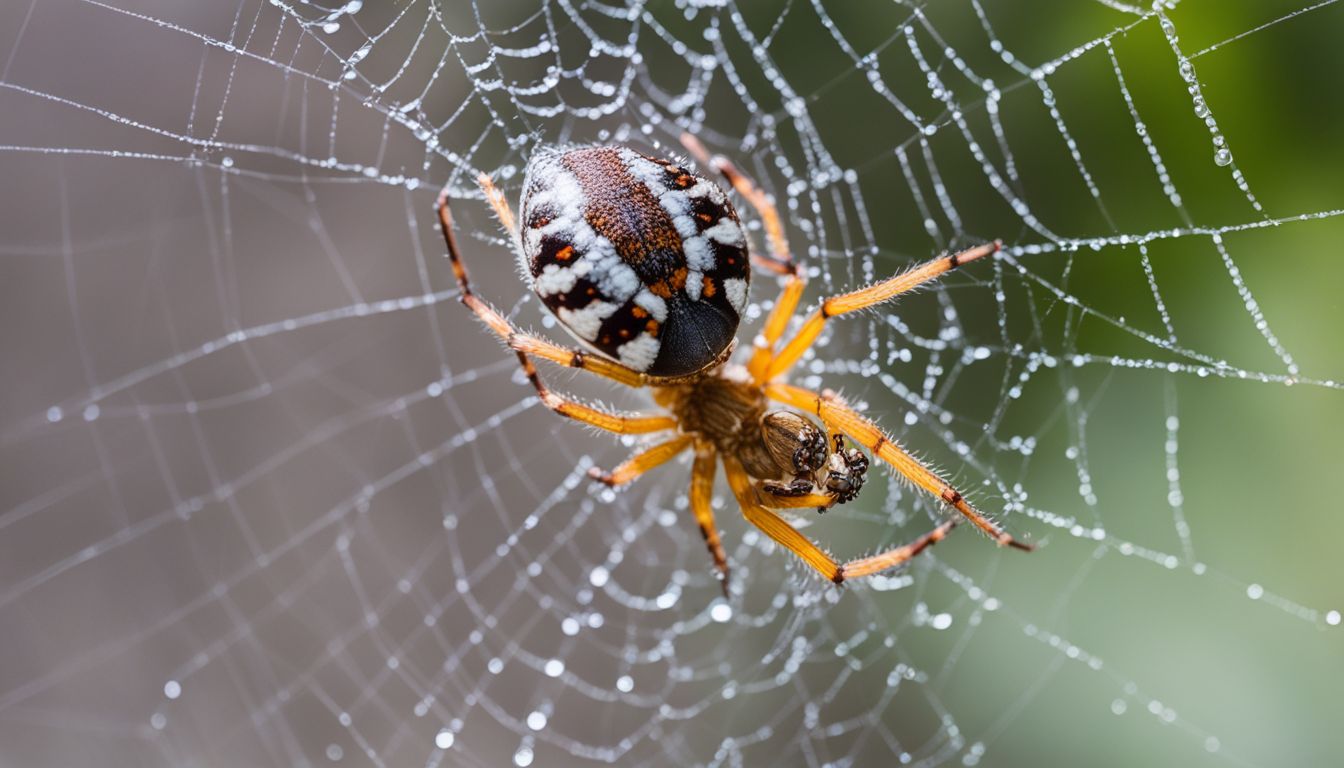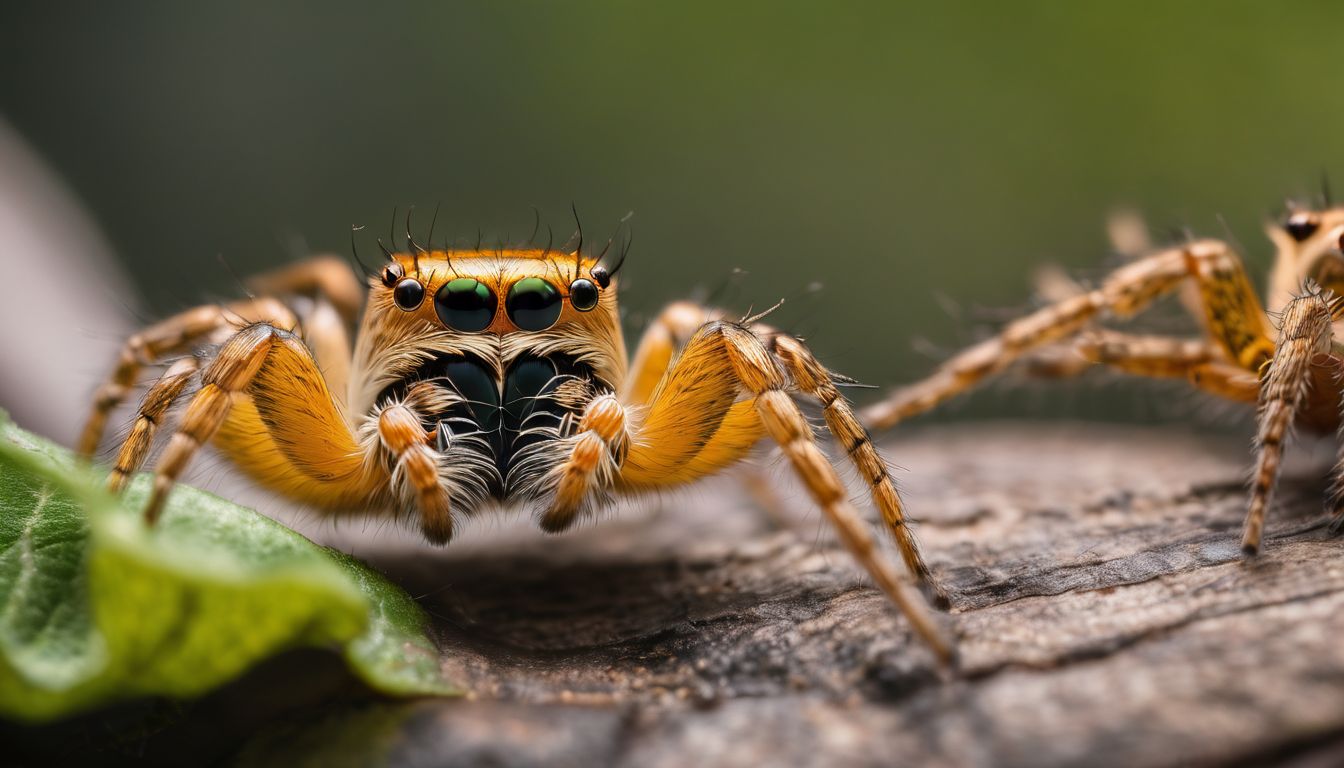Are you waking up to find mysterious bites and wondering if the spiders in your home are taking care of the bed bugs for you? It’s a common belief that our eight-legged friends can keep these pests at bay.
This blog post will unravel the truth about spiders as natural predators and their role in controlling bed bug populations. Keep reading – we’re about to clear up some buggy myths!
Key Takeaways
- Spiders can eat bed bugs, but not all spiders are capable of catching and consuming them due to differences in size and hunting methods.
- Certain species of spiders such as wolf spiders, running crab spiders, and jumping spiders are effective predators of bed bugs due to their size and hunting abilities.
- In addition to spiders, other natural predators of bed bugs include masked hunter bugs, centipedes, and ants. These creatures play a crucial role in controlling the population of bed bugs in their natural environment.
- While natural predators like spiders contribute to preventing infestations by discouraging pests, professional intervention may be necessary for severe or persistent bed bug problems.
Exploring the Myth: Do Spiders Eat Bed Bugs?

There is a common belief that spiders are effective predators of bed bugs, but what’s the truth behind this myth? Let’s explore whether spiders actually play a role in controlling bed bug populations.
Common beliefs about spiders as predators
Many people think spiders are great at eating pests. They catch flies, mosquitoes, and other small bugs in their webs or by hunting them down. Some folks believe that spiders could also eat bed bugs because they see spiders as strong hunters that can help get rid of unwanted insects.
Spiders have eight legs and quick moves to snatch up their food. Most stories say that if you have spiders around, they will munch on bed bugs too.
However, the truth about whether spiders really eat bed bugs isn’t so simple. While it’s true that wolves and jumping spider friends hunt many kinds of creepy-crawlies, not all spiders can handle a meal like a bed bug.
Bed bugs are sneaky and good at hiding where spider webs aren’t usually found. This makes it harder for our eight-legged pals to find them as food.
The Reality of Spiders and Bed Bugs

Spiders can eat bed bugs, but it depends on the size and hunting methods of the spider. Discover which spiders are capable predators and how they catch their prey. Read on to learn more about the truth behind spiders and bed bugs!
Size Matters: Which spiders can eat bed bugs?
Bed bugs are tiny, and not every spider can catch and eat them. Only some spiders are the right size and have the right hunting skills to do this job.
- Wolf spiders hunt on the ground and their size lets them take on bed bugs easily. They move fast and grab their prey with their strong bodies.
- Running crab spiders are quick hunters too. With their long legs, they can chase down bed bugs in no time.
- Jumping spiders use surprise to catch bed bugs. They leap at them from far away.
- Thanatus spiders make a meal out of just bed bugs. They have a special diet that includes these pests.
- The masked hunter is not really a spider but it still hunts for bed bugs. It uses its stickiness to trap them before eating.
The Hunting Methods: Passive vs. Active spider predators
Spiders are amazing hunters. They catch their food in different ways.
- Passive Hunting Spiders: These spiders set up traps. They spin webs to catch bed bugs that walk into them. The spider waits quietly until a bug gets stuck. Then it rushes over to eat the bug.
- Active Hunting Spiders: Some spiders do not use webs. They run and jump to catch their meals. These spiders sneak up on bed bugs or chase them down.
Species of Spiders That Prey on Bed Bugs
Wolf Spiders, Yellow Sac Spiders, and Running Crab Spiders are known to prey on bed bugs. Curious to learn more about these natural predators of bed bugs? Keep reading!
Wolf Spiders
Wolf spiders are natural predators of insects, including bed bugs. They hunt on the ground and do not usually build webs to catch their prey. Although wolf spiders primarily feed on insects, bed bugs are not typically a part of their diet.
It’s important to note that while some spiders may prey on bed bugs, it is not common behavior for all spider species, including wolf spiders. Additionally, wolf spiders are generally not considered poisonous to humans and usually only bite when provoked.
These facts clearly show that while wolf spiders are indeed insect predators and can potentially help control pest populations, including bed bugs, they might not always specifically target these pests as their primary food source.
Yellow Sac Spiders
Moving from wolf spiders to yellow sac spiders, let’s focus on these active hunters. Yellow sac spiders are insectivores that feed on other spiders and non-insect arthropods like cotton plant bugs.
Unlike some other species, they don’t catch prey in webs but instead actively hunt at night. While not aggressive towards humans, they are nocturnal creatures and may come out during the night.
These fast runners also construct their sacs swiftly compared to other spider species.
Running Crab Spiders
Now let’s talk about running crab spiders. These sneaky critters have been found eating bed bugs. Also known as philodromid crab spiders, they are good at camouflaging themselves to avoid detection by mimicking ants or bird droppings.
Running crab spiders are one of the spider species that specialize in dining on bed bugs, making them a helpful natural predator in controlling bed bug infestations.
Running crab spiders can mimic ants or bird droppings as a means of camouflage. Philodromid crab spiders, also known as running crab spiders, are a species that prey on bed bugs.
Colors and Patterns: What Do Spiders Avoid?
Spiders tend to steer clear of bright colors like yellow, white, and orange. Opting for products with fine grains that don’t create hiding spots for spiders can help control their populations around the house.
These strategies are useful in managing spider presence indoors.
Natural Predators of Bed Bugs Beyond Spiders
In addition to spiders, there are other natural predators of bed bugs such as masked bed bug hunters, centipedes, and ants. These predators play a crucial role in controlling the population of bed bugs in their natural environment.
Masked Bed Bug Hunters
The masked hunter bug is a natural enemy of bedbugs. It preys on them regularly, making it a useful ally in controlling bedbug infestations. This bug may seem harmless, but it’s actually a skilled hunter that uses its sharp beak to inject enzymes into its prey, liquefying their insides for easy consumption.
When disturbed, bedbugs release a pheromone as a distress signal for predator attacks – this only makes it easier for the masked hunter to find and feast on them.
Centipedes and Ants
Now, let’s turn our attention to other natural predators of bed bugs beyond spiders. Centipedes are powerful hunters and they are known to prey on various types of insects, including bed bugs.
The house centipede, in particular, is an efficient predator and feeds on a wide range of invertebrates, including blood-sucking bed bugs. On the other hand, ants also play a role as natural predators of bed bugs.
Alongside cockroaches, spiders, mites, and the masked hunter bug – which we discussed earlier – ants contribute to keeping the population of bed bugs in check.
Understanding Pest Control: Natural Predators vs. Professional Intervention
Natural predators like spiders, beetles, flies, true bugs, lacewings, masked bed bug hunters, cockroaches, lizards and certain types of beetles and flies are essential in controlling the population of bed bugs.
They contribute to a balanced ecosystem within the home by discouraging pests and preventing infestations. However, when a pest problem becomes severe or persistent natural predators may not be enough.
In such cases professional intervention can effectively control bed bug populations using specialized methods that go beyond what natural predators alone can achieve.
When dealing with bed bug issues at home or businesses it’s important to consider both the roles of natural predators for long-term prevention and professional intervention for immediate control.
Next: Conclusion
Conclusion
In conclusion, spiders do eat bed bugs. They are natural predators that help control bed bug populations. Other creatures like ants and certain species of spiders also consume bed bugs.
It’s important to address infestations using pest control methods despite the presence of natural predators.
Discover more about the aversions of these eight-legged hunters by exploring our guide on what colors and patterns spiders tend to avoid.
FAQs
1. Do spiders eat bed bugs?
Yes, some spiders do eat bed bugs and their eggs as part of their diet.
2. Are there other bugs that hunt bed bugs too?
Assassin bugs, including the masked hunter bug, are natural enemies of bed bugs and will also eat them.
3. Can any other animals help get rid of bed bugs?
Cats may chase insects but they aren’t good at getting rid of bed bug problems.
4. Are ladybugs and pharaoh ants friends or foes to bed bugs?
Ladybugs usually don’t eat bed bugs. Pharaoh ants might steal food from them but won’t solve a bedbug issue.
5. What about other creatures? Do they all avoid eating egg sacs and parasites like kissing bug does to its victims ?
Some insects like scorpionflies might go after egg sacs while others, such as pyralis pictalis moths or predators like assassin bug, eliminate parasites that attack them differently than how kissing bugs behave with their prey.




